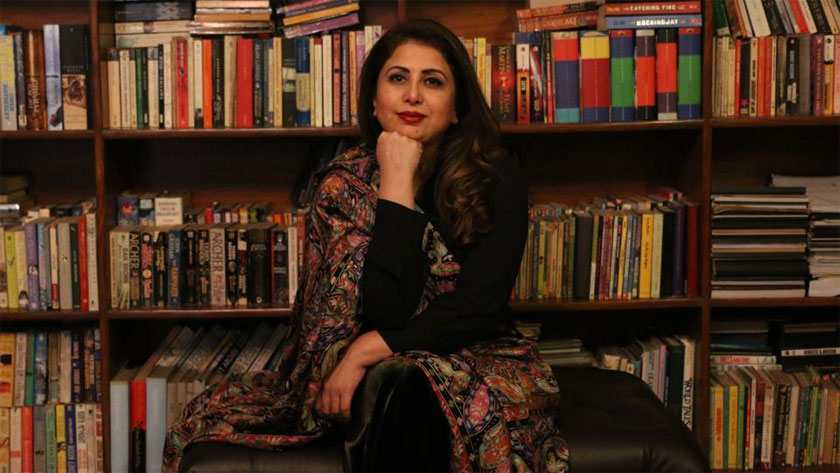Book: This House of Clay and Water
Author: Faiqa Mansab
Reviewed by: Muhammad Omar Iftikhar

It takes an effort to write a sentence and a whole lot of struggle to write a novel. Authors and writing fiction or non-fiction - have to dwell in their mind to unearth the thoughts that create sustenance for their passion of writing and the food for avid readers’ hungry minds. In addition, in that process, the author creates a magnum opus that defines their creativity and provides an impetus for their writing career to grow rapidly. Faiqa Mansab, a promising author from Lahore, in her debut novel, This House of Clay and Water, has touched new heights of creative thinking by highlighting the very intricate details of our society that are hidden behind curtains or evident in plain sight. This House of Clay and Water reveals the story through narrations by a number of characters, making the reading experience enriching and distinctive. There are Nida and Sasha, two women who are lost in their respective worlds. Nida is the wife of a politician and seldom makes an effort to look or feel good whereas Sasha, on the other hand, is exactly her opposite. Then there is Zoya, Sasha’s daughter who is lost between her world and that of her mother and fate leads her to a dark path from where she may not return only because she had been craving for her mother’s love. Then there is Bhanggi, a transgender living at a Dargah in Lahore who experiences a unique spiritual relationship with Nida. Nida, who had never found true love, finds solace around Bhanggi. I personally fell in love with Faiqa Mansab narrative: a few excerpts from the book below are a few examples: “The sky hung listlessly over Lahore, looking faded as if it had been washed one too many times with cheap detergent.” “There was the mystical, the colonial, the historical Lahore that had had countless marauding armies storm its legendary gates. Gates that lay in ruins now, like thirteen distorted maws, frozen in a mute scream, echoing mine.” “She walked over to the huge banyan tree, the bargadh. The tree was ancient, an increasingly rare sight in Lahore. The ground around it was broken and cracked, and the roots had broken out, like the gnarled fingers of a subterranean monster struggling to get out.” The book made me feel how harsh the society is towards women; it hurts and suffocates them. Our society is male-dominated and men want to exercise their hegemony over the opposite sex. On the other hand, Sasha, who always breaks social norms and spends hours with other men in search of love is never blamed by men for the life she has chosen. Faiqa’s way of explaining the lives of Nida, Sasha and Bhanggi is quite interesting as every character has a different life, varying problems and altering mindsets. Through Nida, Faiqa reveals the maledominated society women live in Pakistan and how they are forced to abide by their husband’s orders. Through Bhanggi, Faiqa shows how the transgender community of Pakistan, especially of Lahore, is abused. Through Sasha, Faiqa narrates the life of a lost soul who slowly transforms into a hijab-wearing woman. Sasha remained dominant while she pleases men or when she turns into a religious woman - for in both of her persona she was in control. This was another delicate social predicament Faiqa looked upon in her story. Narrated with a combination of calmness and rage, Faiqa Mansab takes her readers on a journey where each character evolves in their own domain, eventually reaching the climax which itself sends the reader into introspection and retrospection.
The writer is a columnist and an author